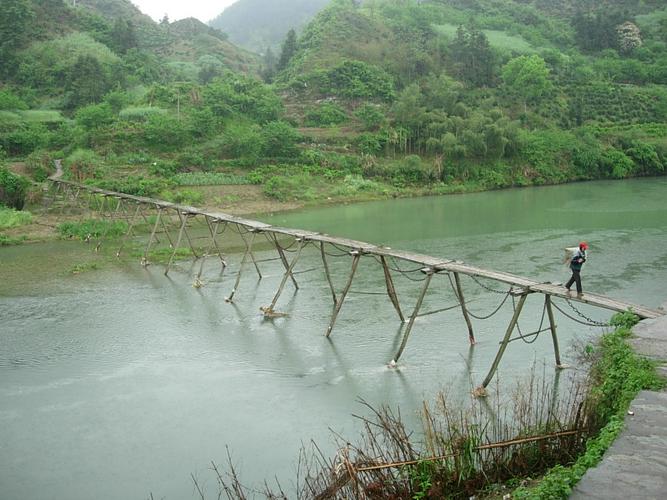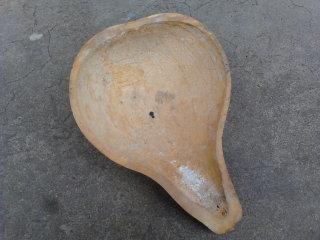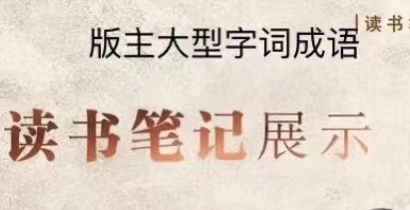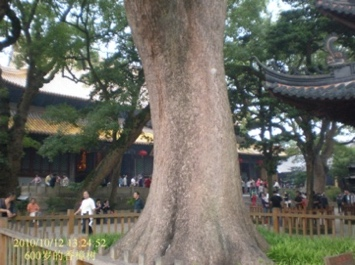Infancy
I was born on the sixth day after the spring festival of 1945, i.e. on the sixth of January of Chinese lunar year. Mother told me that I came to the world at midnight. Traditionally, the Chinese people count 24 hours of a day by means of 12 animals, the mouse being the first one, between 23 o’clock and 1 o’clock in the next early morning. When I began to use the computer in the 90’s of 20th century I looked up what is called the ten-thousand-year calendar and discovered my birth day fell on Feb. 18 of 1945. However my file date of birth is March 6 of 1945, which I filled in a form myself during my junior middle school, and since then I have always been writing this date as my birthday. As a child, when comparing with other little fellows of the same age, I was always older than any of them because I was born in the first month of the Chinese year. Although they were younger than me, most of them were taller and heavier than me. Even though my test scores in the primary school were higher than theirs, I have no reason to be proud of my achievement. Accordingly I anxiously wished that I had been born later. When studying in the junior middle school I already knew that the solar year month is about one month earlier than the lunar year month, I decided to retard for another one month, writing in the birthday box “March 6”. This was a child’s point of view which may be hard to understand by an adult, but that was what I really thought and did.
Mother told me that my birth bought great joy to the family because before me she had been pregnant with three girls. In my hometown people believed that a boy born on the sixth, sixteenth or twenty-sixth was sure to have fish and meat to eat, while girls born on the three days were to wear beautiful clothes when growing up. Although I didn’t believe such a saying, sometimes it gave me some confidence.
My birthplace was called at that time: Shuilun Village, Jinyu Township, Nantong County, Nantong District, Jiangsu Province, China. Administration names changed several times. When I was writing this section of “My Career”, the address is Jinyu Village, Jinsha Town, Tongzhou District, Nantong City, Jiangsu Provicne, China. The predecessor of Tongzhou District was Tongzhou City and Nantong County, whose capital was Jinsha Town. Jinyu lay about six kilometres to the east of Jinsha. People there called Jinyu a town although it was not an administration level town. My home town used to be a riverine area, with the distance about 800 meters between there were small north-south rivers, which divided the land into rectangle blocks called “Zong” or “Jia”. Jinyu was located in the first “Zong”, local dialect called it “Head Zong”. In its west, “Second Zong”, “Third Zong” and etc. in the order; in its east, “Ninth Jia”, “Eighth Jia”,”Seventh Jia” and etc. in the order. If you look at the map of Nantong City, even Tongzhou District, you can find some big towns called “Zong” or “Jia”, such as “Wuzong”(Fifth Zong) ,”Shizong” (Tenth Zong), “Erjia” (Second Jia) etc. Actually there were a lot of “Zong” and “Jia” with the same ordinal number.
My hometown was a real riverine net area. Many small rivers from south to north mentioned above caused the traffic to be inconvenient. There were not many bridges over them and you must be careful to walk on them, because they were made of wood, and were so narrow that two people were just able to go in the opposite direction. With no railing, kids were afraid of walking across them.

Woodbridge between Jia and Jia and Zong and Zong
According to the historical record, Tongzhou region used to be shoals in the sea and river, which appeared from the water during the middle of the Northern and Southern dynasties (420-589) and later migrants began settle down, boiling salt for life. During the Tang Dynasty it was saltworks and the defense organ was established. During the middle of the Tang Dynasty shoals were growing to connect with the mainland, and people dug canals to transport salts to Yangzhou. Furthermore people dammed and dyked and began to plant wheat and broomcorn millet, changing from making salt alone to the agriculture. Xiande Year 5 of the later Zhou (958) Jinghai County was established, subordinated to Tongzhou. Hongwu Year 1 of the Ming Dynasty, Jinghai County was merged into Tongzhou. During the Ming Dynasty a lot of tideland was enclosed for cultivation and agriculture was developing gradually. The home cotton spinning and weaving and grain, edible oil and food manufacture were prosperous. The commercial industry was growing and flourishing and cultural undertakings developed well. At the end of the Ming Dynasty and the beginning of the Qing Dynasty, the economy was declining, and the population was reducing. When Kangxi Emperor in the Qing Dynasty was enthroned, opening up virgin soil was encouraged, and the economy was coming back to life gradually. Tongzhou became a famous “town of handwoven cloth”. Yongzheng Year 2 of the Qing Dynasty (1724), Tongzhou became subordinated directly to the provincial government. In the first year of the People’s Republic it was renamed the Nantong County. My town was situated 30 kilometers away to the east of Nantong City and its developing time was much later. We could image that our ancestors first dug canals going from south to north on the alluvial plain, undertook water conservancy projects and then dug longer canals going from east to west for transportation. In June of 2009 I measured with Meilan Zhang the distance between two canals going south to north with a step counter. The distance between the Ninth Jia and that of the Second Zong and the Third Zong were both 800 meters, indicating that the engineers at that time measured the distance precisely. The river net ensured irrigation and drain of flood. More and more people migrated here and it was almost during the Kangxi years(1654-1772).
My birthplace was in the north part of “Third Zong”, to the northwest part of Jinyu. Parents moved from the country village to the street of Jinyu when I was 3 years old. At that time they just entered their thirties and had some courage to rush, although the distance was only 4 Chinese li. At the beginning there were a lot of difficulties. They rent a straw house with two rooms and a small storefront to start their small business. The Chinese Communist Party was about to defeat the National Party and come to power. One afternoon I saw a man with a gun rushing down from the bridge north to our store, which sent the message to the adults that a fight was drawing near. My parents shut and locked the store door and went home in a hurry. I sat at the backdoor of our house and two loud gunshots frightened me to a jump. Mother was afraid that I was scared a lot and comforted me for a long time.
Despite their moving to the town, parents always dared not leave the land. During busy farming season we all went back and lived in the country. At that time all residents lived along the small rivers which divided the land into “Zong” or “Jia”. In the front of our house there was a small pond surrounded by varieties of trees. Between the pond and the small river there was a small dam, under which water could flow through a hole, resulting in the running water in the pond. Across the pond lived another family whose surname was also Song. All of us washed rice, vegetables and clothes in it and also fetched drinking and eating water from it. Cropland was to the west of our house, which was divided by demarcation ditches in which various luxuriant water plants and high reeds were growing. The pond was also linked to the ditches. Despite no pollution of modern society, the water in it was not very clean.
My grandpa, Guangyuan Song, was 54 years older than me. Mother told me that they were both born in the rabbit year. In the Chinese culture, 12 animals can be used to count not only 24 hours of a day, but also 12 years. Every 12 years forms a group and when it ends another 12 years begins. Mother and grandpa were both born in rabbit year, which meant that there were 24 years between them. Mother was born in 1915, 30 years older than me and grandpa was born in 1891(17 Years of Guangxu of Qing Dynasty). Mother could remember all the animals of all people of her own and previous generation when she was 93 years old, which gave me precise proof to count which year the main members of my big family were born. The following are the results of my counting, which can be in commemoration of my elder, different from burning paper and sweeping the graves every year.
Grandma, born in snake year, 1893(19 Years of Guangxu of Qing Dynasty)—1965(lived to 72); grandpa (mother’s father) Hanlin Yan, born in a dragon year(18 Years of Guangxu), 1892—1973(lived to 81); grandma(mother’s mother), born in horse year, 1894年(19 Years of Guangxu)—1963(lived to 69); father Jincai Song, born in tiger year, 1914—2005(to 91); first uncle Jinyou Song, born in dragon year, 1916—2009 (to 95); the third uncle, Jilai Song, born in a cock year, 1921—1960 (to 39, starved to death during the difficult years); the fourth uncle, Jinfa Song, born in dog year, 1922—1949 (to 27, died of deep nail-like boil); aunt, father’s sister, born in horse year, 1930 and when I was correcting the script, she was 82 years old.
At the end of 1948, parents rented a small piece of land from a Ma’s family to build a house. Because of the limited size, the project was very difficult to construct. It was impossible to build a house with three rooms north sitting to the south as most houses in China. Father overcame a lot of difficulties and finally built a house with woods crossed each other. The storefront faces west with several shutters which could be taken away during the daytime in order to do business. Lack of fund, father had to lend some money from a relative, with the interest of 20% a year, quite high. The house was very simple and humble. The wall was not made of bricks but fences made of reeds. The roof was covered with rice straws, which had to be changed once a year. Nevertheless, it always leaked during the summer raining season, which forced us to make use of all the containers to catch the leaking water from the roof. The house base was not high and the fences of reeds were not able to prevent the rainwater flowing into the house, so dirty muddy water spilled in and father had no choice but dig several shallow pits to hold the water. With a ladle he scooped the water from the pit, poured it in the bucket and sprinkled it out. No matter how poor and inconvenient it was we had our own house and didn’t live in the countryside even during the busy farming season.
In 1949 my brother Delong Song (pet name: Xiaolin) was born, which made me suffer a lot from falling into disfavor. I couldn’t sleep close to mother’s bosom and had to lie at the other end of the bed. It has always been in my memory that one evening during the wheat harvest season of 1950 father, mother, elder brother and sister, and younger brother Xiaolin as well, who were too young to walk were ready to leave for new home, asking me to stay with granny because I was not able to walk so far as 2 kilometers and would become their burden. Furthermore, they would come again the next day. But I was unwilling to stay with granny for the night and determined to follow them. This was because during the night I would get up and excreted urine.During the night it was in pitch darkness without any light. In our own home I knew where chamber pot was and got used to getting up and finding it even when I was in half sleep condition. After the urination I could get on the bed fuzzily and fell asleep again in a very short while. I am very afraid of sleeping in other people’s home. Even though I was told where the chamber pot was I would be lost and couldn’t find it when I wanted to urinate and a lot of shameful stories had happened before. So I followed them and naturally was found by them. They drove me back and when they made their way forward I followed them again, which got parents very angry. They forced me into the grandparents’ room and locked the door, letting me cry and call noisily until I was completely tired out, causing me extremely sad. Later I got touch with kind of psychology, getting to know that such a distress during my childhood belonged to what was called distress caused by “loss of growing”. As you grew, what already belonged to you would be lost and you had to suffer the pain.
Recollection of the life at that time: Most of the consumable were produced by adults. In the field grew not only grains, but also soybeans for making edible oil, and cotton which can be made thread and cloth, low quality of which can be used to make cotton-wadded jackets and quilt wadding. Nantong region is rich with beans, esp. broad beans. At that time people used broad beans to make starch, of which to produce starch skin and noodle. Glutinous rice was the raw material for wine-making. In addition to extracting oil from the soybean, it could be used to make bean curd (doufu) and soy sauce. All of those products mentioned above were produced in our own home and most of them were for our own consumption, only a small part of which were sold. We needed to buy only a few things. Edible oil was also used for illumination. Beanstalk ash was mixed with the water and after its precipitation the water above could be used to wash clothes, which was said to have some alkalis in it. Scoops for scooping up water were made of gourds; rain clothes were woven with a kind of strong and long grass; sandals were knit with straws; shoes, socks, stockings, caps were made by women with the cloth they’d woven. Because of rivers, ponds and ditches everywhere we could often eat fish, shrimps and water snail meat. Eggs were also often on the table. In the front and back garden grew various vegetables, including those used to make brined vegetables. We didn’t have pork until a festival. Every spring a nest chicken was hatched and young cocks might be killed to celebrate the mid-autumn festival (moon festival, on the fifteenth of lunar year of the eighth month). Fruits were not seen, let alone being tasted by us. Men in my family were inherited tailors. In the slack farming season, they went to other people’s home to make clothes, earning some spending money to buy salt, matches, pots, bowls, copper and iron wares, and farm tools. After moving to the town great changes took place. Parents did small business and small amount of money came in every day with which we could buy daily necessities, exchanges increasing a lot. Despite some exchanges, we lived simply on a bamboo dish of rice and a gourd of drink. My experience during my childhood in the countryside helped me a lot to understand the self-sufficient natural economy of the Chinese feudal societywhen I studied in the senior middle school.

Scoop made of gourd
On the early morning of Oct. 4, 2008 in Melbourne
Revised on Feb. 3, 2010
Final version Jan. 25, 2012 in Chicago
Upload online on Aug. 3 2023









